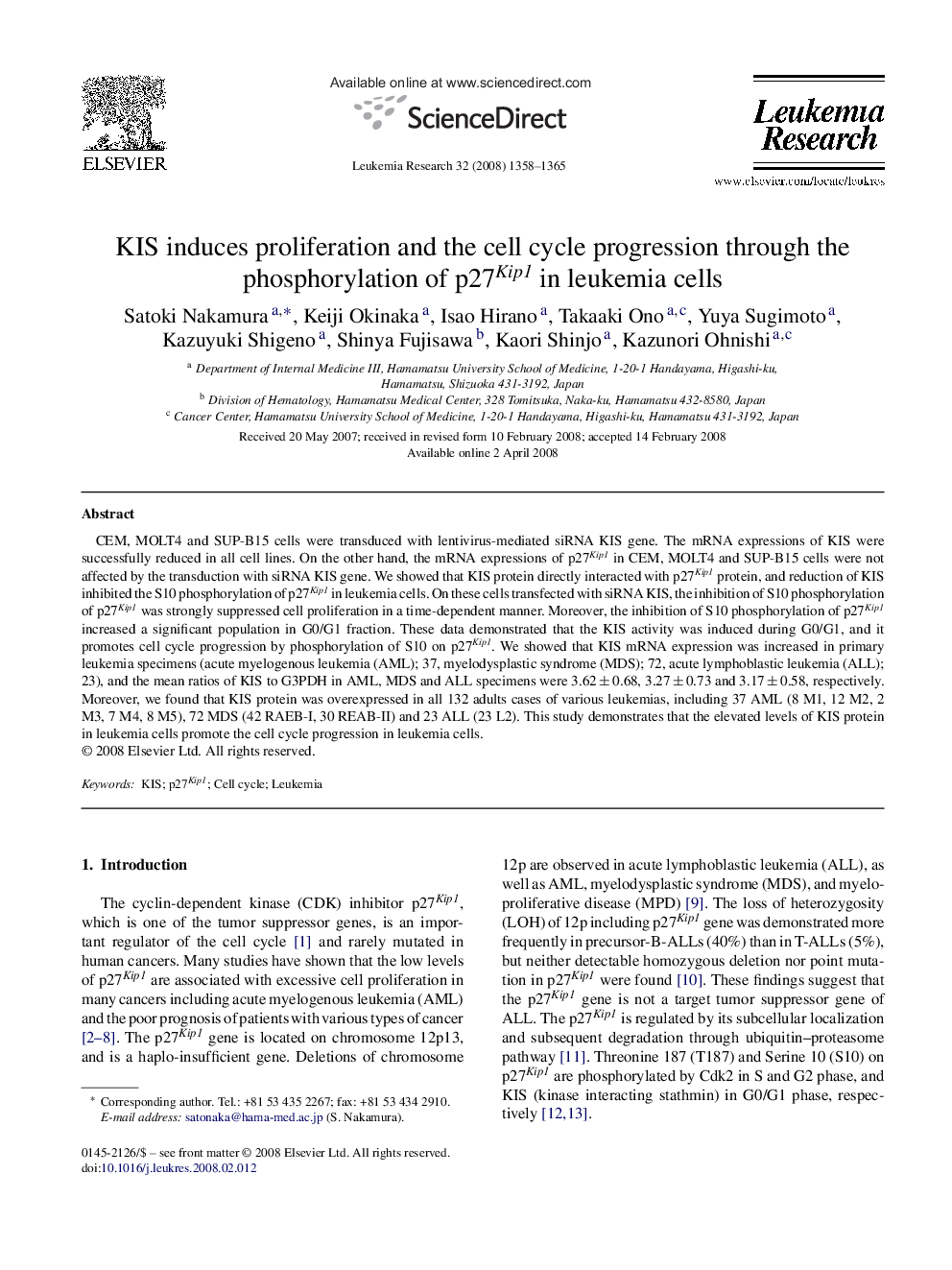| Article ID | Journal | Published Year | Pages | File Type |
|---|---|---|---|---|
| 2138954 | Leukemia Research | 2008 | 8 Pages |
CEM, MOLT4 and SUP-B15 cells were transduced with lentivirus-mediated siRNA KIS gene. The mRNA expressions of KIS were successfully reduced in all cell lines. On the other hand, the mRNA expressions of p27Kip1 in CEM, MOLT4 and SUP-B15 cells were not affected by the transduction with siRNA KIS gene. We showed that KIS protein directly interacted with p27Kip1 protein, and reduction of KIS inhibited the S10 phosphorylation of p27Kip1 in leukemia cells. On these cells transfected with siRNA KIS, the inhibition of S10 phosphorylation of p27Kip1 was strongly suppressed cell proliferation in a time-dependent manner. Moreover, the inhibition of S10 phosphorylation of p27Kip1 increased a significant population in G0/G1 fraction. These data demonstrated that the KIS activity was induced during G0/G1, and it promotes cell cycle progression by phosphorylation of S10 on p27Kip1. We showed that KIS mRNA expression was increased in primary leukemia specimens (acute myelogenous leukemia (AML); 37, myelodysplastic syndrome (MDS); 72, acute lymphoblastic leukemia (ALL); 23), and the mean ratios of KIS to G3PDH in AML, MDS and ALL specimens were 3.62 ± 0.68, 3.27 ± 0.73 and 3.17 ± 0.58, respectively. Moreover, we found that KIS protein was overexpressed in all 132 adults cases of various leukemias, including 37 AML (8 M1, 12 M2, 2 M3, 7 M4, 8 M5), 72 MDS (42 RAEB-I, 30 REAB-II) and 23 ALL (23 L2). This study demonstrates that the elevated levels of KIS protein in leukemia cells promote the cell cycle progression in leukemia cells.
